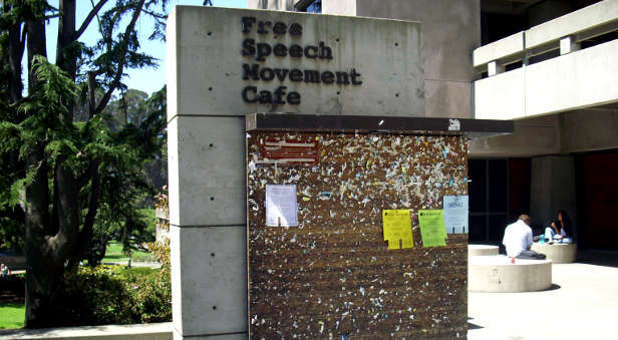Free-Speech Advocates Have Their Say on Capitol Hill
Voices that were once muffled on college campuses were heard loud and clear on Capitol Hill Tuesday.
Members of both the Subcommittee on Healthcare, Benefits and Administrative Rules and the Subcommittee on Intergovernmental Affairs gathered to “to understand the policies and viewpoints that have enabled suppression of constitutionally protected free speech at institutions of higher education.”
Advocates for free speech say they have found it increasingly difficult to have open debate and discussion of differing opinions on college campuses.
One example is the Fresno State case, in which pro-life students, who received permission from the university to spread their message, were accosted by a professor who erased their sayings and told them, “College campuses are not free speech areas.”
More recently, Arizonians were up in arms over a bill they say would limit free speech.
HB 2563 was widely scrutinized for this verbiage: “A university or community college may restrict a student’s right to speak, including verbal speech, holding a sign or distributing fliers or other materials, in a public forum.”
Tuesday’s hearing called on victims of speech suppression to testify about their personal experiences.
One of the panelists is professor Allison Stranger of Middlebury College in Vermont. Last winter, Stranger was assaulted by students who challenged her choice of a conservative speaker in what she called “a chance to demonstrate publicly a commitment to a free and fair exchange of views in my classroom.”
In an opinion piece for The New York Times, Stanger chronicled her narrow escape from a mob of protestors who verbally and physically attacked her.
Although she was just the moderator and, in fact, disagreed with the speaker’s viewpoints, she found herself in the unlikely position of defending the presenter from the mob.
The unruly group swarmed her, pulled her hair and chased her to her car, where they then jumped on the hood.
Stranger says she spent a week in the hospital and tells readers it took her that long to recover from “whiplash and a concussion for having the audacity to engage with the ideas of Charles Murray, a scholar at the American Enterprise Institute.”
During the hearing, U.S. Rep. Jamie Raskin, D-Md., a professor of constitutional law at American University, said he disagrees with free speech zones on campuses because in his words, “America itself is a free speech zone.”
Testimony from Dr. Bret Weinstein, a professor who says he was bullied out of his tenured position at Evergreen State College, pointed to a larger issue.
Likening the protestors to “members of a cult,” Weinstein says the problem is not just about free speech but that “what is occurring on college campuses is about power and control.”
Tyson C. Langhofer, who serves as senior counsel with Alliance Defending Freedom, rounded out the list of witnesses.
Langhofer urged lawmakers to take a close look at this issue, saying, “Our colleges can do better. Our students deserve better.” {eoa}
Reprinted with permission from CBN.com. Copyright The Christian Broadcasting Network, all rights reserved.














































